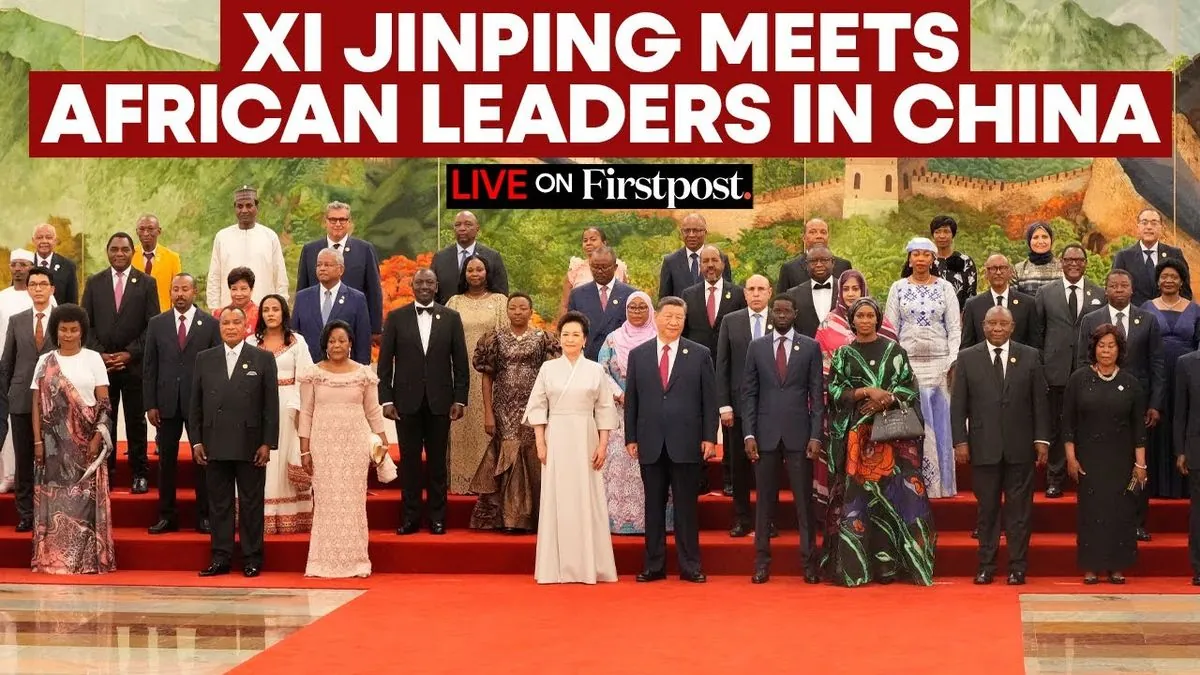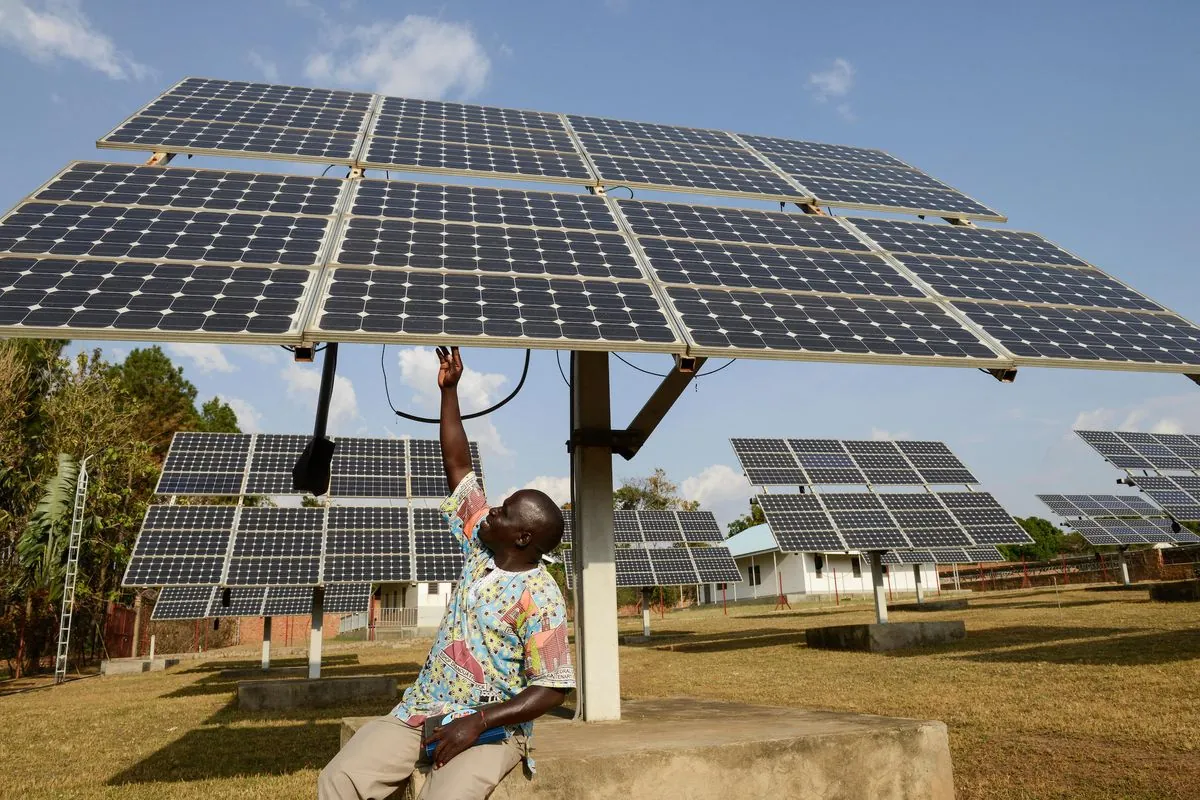China Pledges $50.7 Billion to Africa, Focusing on Green Energy and Trade
At the FOCAC summit, China committed $50.7 billion to Africa over three years, emphasizing green energy and trade links. The pledge falls short of previous amounts and lacks firm debt relief commitments.

At the recent Forum on China-Africa Cooperation (FOCAC) summit, China made a significant financial commitment to Africa, pledging 360 billion yuan ($50.7 billion) over the next three years. This triennial event, which began in 2000, has evolved into a crucial platform for Sino-African relations, particularly since the inception of President Xi Jinping's Belt and Road Initiative (BRI) in 2013.
The summit, held in Beijing on September 7, 2024, brought together leaders from over 50 African nations and Chinese officials. While the financial pledge surpasses the previous FOCAC commitment in 2021, it falls short of the $60 billion promised in both 2015 and 2018, which marked the peak of China's lending to Africa under the BRI.
China's latest commitment focuses on green energy and improving trade links. The funds will support 30 infrastructure projects and 30 clean energy initiatives across the continent. This shift reflects China's growing prominence in renewable energy, particularly in wind and solar technologies.

However, the summit did not address the debt relief sought by many African countries. Instead, China urged other creditors to participate in debt restructuring efforts, emphasizing "joint actions and fair burden-sharing."
The FOCAC summit also highlighted China's strategy to counter growing competition in Africa from other global powers, including the United States, European Union, and Japan. By enhancing its role in Africa's development, China aims to maintain its position as the continent's largest bilateral lender.
African leaders had mixed reactions to the summit's outcomes. While some welcomed China's increased commitments to security and humanitarian challenges, others had hoped for more substantial financial deals. Ethiopia and Mauritius announced new currency swap lines with China's central bank, while Kenya reported progress in talks to reopen lending for key projects, including its modern railway.
"After nearly 70 years of hard work, China-Africa relations are at their best in history."
This statement reflects the long-standing relationship between China and African nations, which has evolved significantly over the past seven decades.
The summit also marked a shift in China's approach to overseas investments. Since 2019, Beijing has reduced funding for large infrastructure projects in Africa, focusing instead on "small and beautiful" projects. This change is attributed to China's domestic economic pressures and increased debt risks among African countries.
Despite the reduced financial commitment compared to previous years, experts view the summit's outcomes as an impetus for green projects and renewable energy installations in Africa. With the continent facing an annual infrastructure funding deficit of approximately $100 billion, China's continued engagement remains crucial for Africa's development goals and the realization of the African Continental Free Trade Area (AfCFTA).
As China-Africa relations continue to evolve, the focus on green energy, trade links, and non-financial aspects of cooperation may shape the future of this partnership. While challenges remain, particularly in debt management and project transparency, the FOCAC summit demonstrates China's ongoing commitment to its African partners in an increasingly competitive global landscape.


































